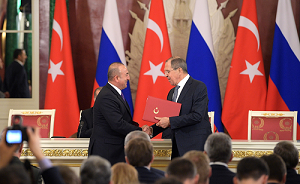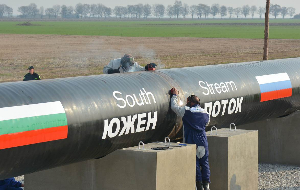Turkish Stream Moves Ahead
by Natalia Konarzewska
April 19, 2017
On February 1, Russia’s Federation Council, the upper house of parliament, ratified the inter-governmental agreement (IGA) on construction of Turkish Stream, a pipeline designed to carry Russian gas to Turkey and further to Europe. The bill was earlier approved by the Turkish parliament in December 2016 and by Russia’s State Duma, the lower house of parliament, in late January. Russia is also investigating means for transporting gas to southern Europe. In January, the Deputy Chairman of Gazprom’s Board Alexander Medvedev announced that Gazprom was interested in using the capacities of the Trans-Adriatic Pipeline (TAP) or ITGI-Poseidon to bring its gas to Europe.

Turkey’s Alternative Gas Suppliers: Who to bet on?
By Ipek Velioglu
January 15th, 2016, The Turkey Analyst
Turkey’s decision to shoot down a Russian jet in the Syrian border led to a crisis between the two countries. Although Russia and Turkey always had divergent political agendas, they maintained a good relationship. In the last decade, thanks to the personal relationship of the leaders, Russia and Turkey created a strong economic partnership, especially in the energy field, and kept it separately from the political sphere. But this time is different: the deterioration in political relations will have a strong impact on energy cooperation. Russia slammed economic sanctions on Turkey and big investment projects are at risk. Given its dependency on Russian natural gas, Turkey is concerned about its energy security, making the quest for alternative suppliers and sources highly relevant.
South Stream, Russia and Turkey: What Does The Deal Mean?
By Stephen Blank (vol. 7, no. 22 of the Turkey Analyst)
The announcement that the original South Stream is being closed, and is instead going to be redirected through Turkey, is of epochal significance. However, it is by no means certain that Russia and Turkey can pursue antagonistic policies geopolitically and simultaneously maximize the benefits of their deepened energy relation and increased economic cooperation. And in its eagerness to become a gas hub, Turkey has severely limited the possibilities for Ukraine, Azerbaijan, and Central Asian gas producers to break free of Moscow’s energy grip.





